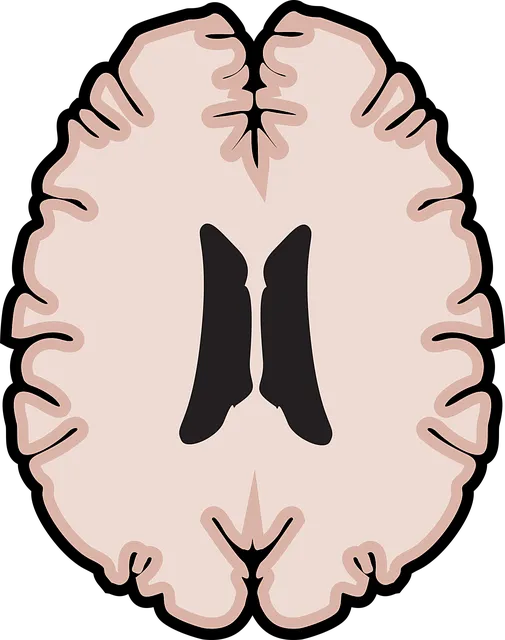Kaiser Permanente Lafayette is a leading provider of mental health support in its community, utilizing data-driven strategies to enhance patient care. They prioritize collecting and analyzing mental health data to tailor interventions like group therapy and personalized counseling. With innovative programs like Mental Wellness Coaching and accessible resources such as podcasts, they create a holistic environment. By understanding the diverse needs of the Lafayette demographic, including underserved populations, Kaiser Permanente ensures tailored support for improved mental well-being. If you're seeking mental health services in Lafayette, Kaiser Permanente is equipped to help, effectively addressing "does Kaiser Permanente offer mental health services Lafayette?"
“Mental health data analysis is a powerful tool for understanding and improving healthcare outcomes. This article explores the methodologies and significance of data interpretation within Kaiser Permanente Lafayette’s mental health services. We delve into the process of collecting, analyzing, and utilizing this data to enhance patient care.
From understanding data collection methods at Kaiser Permanente Lafayette to evaluating program effectiveness through case studies, this piece highlights the critical role of data in shaping mental health service delivery. Discover how these insights contribute to improving access and quality of care for individuals seeking support.”
- Understanding Mental Health Data Collection at Kaiser Permanente Lafayette
- Analyzing and Interpreting Mental Health Data for Effective Service Delivery
- Key Considerations in Evaluating Mental Health Programs: A Case Study of Kaiser Permanente Lafayette Services
Understanding Mental Health Data Collection at Kaiser Permanente Lafayette

Kaiser Permanente Lafayette stands as a beacon of mental health support within its community. The organization prioritizes comprehensive data collection to enhance patient care and outcomes. Through a multi-faceted approach, Kaiser Permanente offers not just mental health services in Lafayette but also innovative strategies for coping skills development. This includes tailored communication strategies designed to foster open dialogue and understanding among patients and healthcare providers.
The range of services extends to trauma support, acknowledging the profound impact of traumatic experiences on mental well-being. By meticulously analyzing this data, Kaiser Permanente Lafayette can better equip itself to provide effective interventions and resources, such as group therapy sessions and personalized counseling, catering to a diverse array of mental health needs.
Analyzing and Interpreting Mental Health Data for Effective Service Delivery

Analyzing mental health data is a critical component of delivering effective services to patients at Kaiser Permanente Lafayette. By delving into this data, healthcare professionals can identify trends and patterns that indicate areas for improvement or specific needs within the community. This process involves not only quantitative analysis but also qualitative interpretation, where understanding individual stories and experiences enriches the overall picture. Such insights enable tailored interventions and support strategies, ensuring services align with the unique mental health landscape of Lafayette.
The data-driven approach is further enhanced by leveraging tools like Crisis Intervention Guidance and developing innovative programs, such as Mental Wellness Coaching. These initiatives complement traditional care models, fostering a more holistic and accessible environment for those seeking mental wellness. Additionally, Kaiser Permanente’s commitment to ongoing research and education, exemplified through the production of Mental Wellness Podcasts, ensures that both staff and patients stay informed about best practices and emerging trends in mental health care.
Key Considerations in Evaluating Mental Health Programs: A Case Study of Kaiser Permanente Lafayette Services

Evaluating mental health programs is a multifaceted process that requires careful consideration of various factors to ensure effectiveness and positive outcomes for individuals seeking support. A case study of Kaiser Permanente Lafayette Services sheds light on some key aspects in this domain. Firstly, understanding the demographic reach and specific needs of the community they serve is vital. Does Kaiser Permanente offer mental health services in Lafayette? The answer lies in assessing whether their programs cater to diverse populations, considering age groups, cultural backgrounds, and unique challenges within the community.
In the case of Kaiser Permanente Lafayette, a comprehensive evaluation might involve analyzing participation rates in their mental health initiatives, especially among underserved populations. This includes examining the uptake of services like Anxiety Relief programs, Self-Care Routine Development workshops, and Stress Reduction Methods sessions. By delving into these aspects, healthcare providers can ensure that their offerings are accessible, tailored to needs, and ultimately contribute to improved mental well-being for all individuals they serve.
Kaiser Permanente’s approach to mental health data analysis in its Lafayette services demonstrates a commitment to understanding and improving patient care. By employing sophisticated techniques to collect, analyze, and interpret mental health data, the organization can identify trends, assess program effectiveness, and make data-driven decisions. This case study highlights how such practices can enhance service delivery, ensuring that mental health programs are tailored to meet the unique needs of the community they serve. As Kaiser Permanente continues to refine its methods, it not only improves patient outcomes but also establishes itself as a leader in leveraging data for better mental health care within its Lafayette network and beyond.






